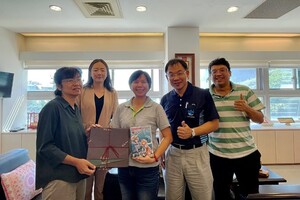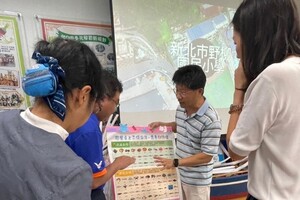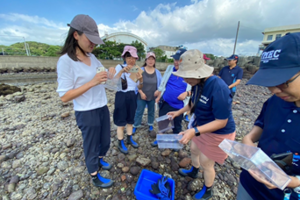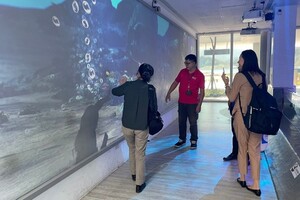Visit by the Ocean Policy Research Institute (OPRI) to Taiwan: Strengthening Taiwan–Japan Collaboration in Marine Education




Project Assistant:CHANG, YAN-LING
Researchers Sachiko Oguma and Miho Takakura from Japan's Ocean Policy Research Institute (OPRI) visited Taiwan from August 19 to 22 to participate in the 2024 Marine Professionals Cultivation Forum as keynote speakers, where they shared insights into the practical implementation of marine education policies in Japan. During their visit, they also conducted field trips to two marine education base schools—Yeliou Elementary School and Shimen Experimental Junior High School—and the National Museum of Marine Science and Technology, where they gained an understanding of Taiwan’s current marine education efforts from the perspective of social education institutions. At the Chaojing Intelligent Ocean, one of the venues of the National Museum of Marine Science and Technology, they experienced how technology is integrated with marine ecological education and explored various coral reef restoration initiatives.
Because the OPRI’s Pioneer School Program (PSP ) in Japan shares similarities with the Marine Education Innovation Curriculum and Base Schools established by Taiwan’s Ministry of Education, the Center specially arranged for the two researchers to visit these sites. Yeliou Elementary School, which has been recognized with the Ministry of Education's Marine Education Contribution Award, integrates local marine culture into its distinctive marine education curriculum under the concept of “Life by the Sea, Life with the Sea.” The school also leverages its geographical proximity to Yehliu Geopark by training students to conduct English-language guided tours at the site. Shimen Experimental Junior High School, located on the scenic northern coast of Taiwan, boasts abundant natural ecological resources and has developed the innovative and experimental “Crossing Mountains, Enjoying the Sea, Painting Shimen” curriculum. This curriculum aligns with the United Nation’s Sustainable Development Goals (SDGs) and extends marine education into outdoor classrooms.
Both sides expressed that they gained valuable insights from the forum and the field visits. Looking ahead, they hope to facilitate exchanges and learning opportunities between teachers from Taiwan’s base schools and Japan’s pioneer schools. Additionally, they aim to encourage students to engage in direct dialogue and exchange on marine-related issues of mutual concern.

